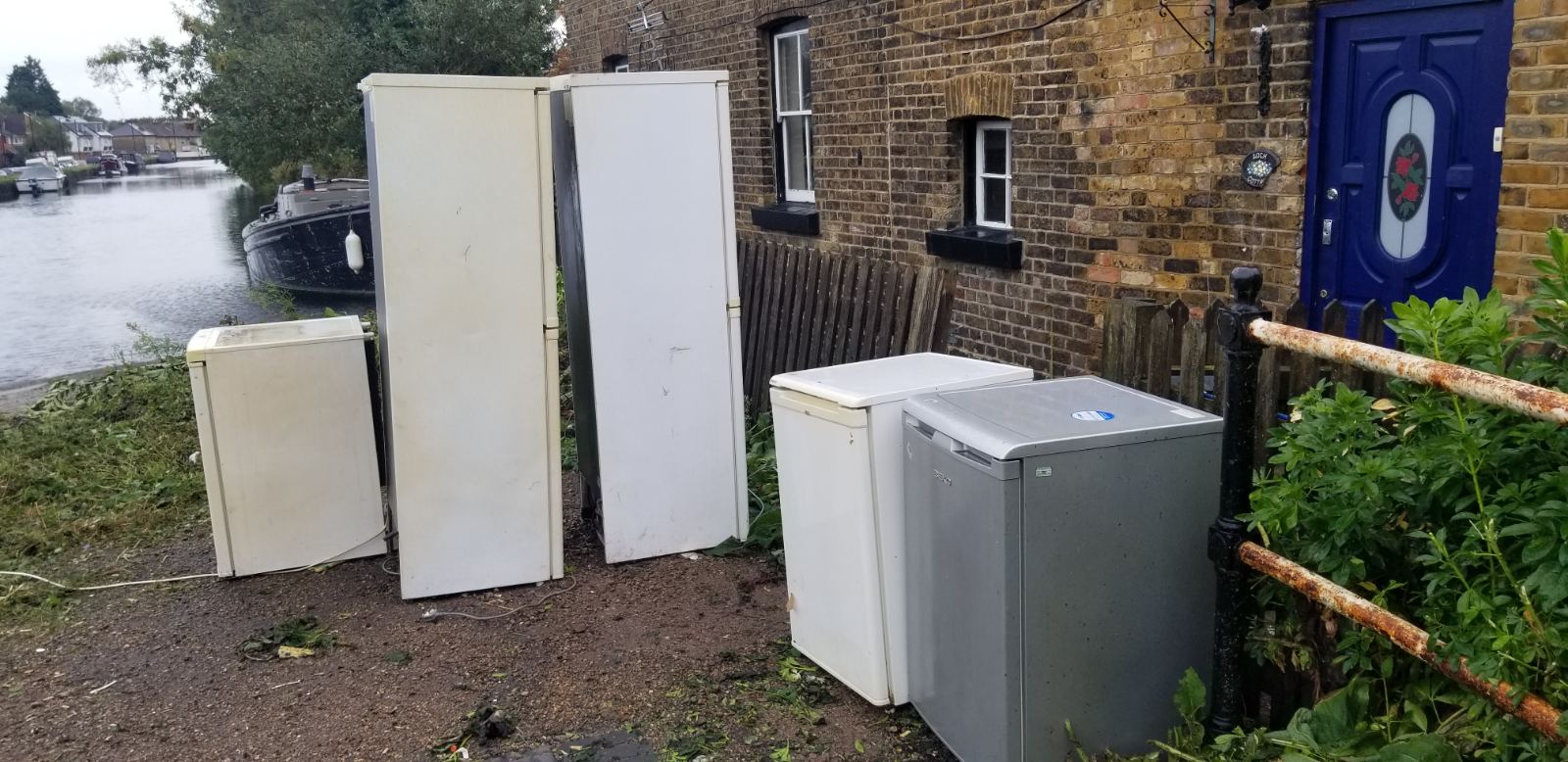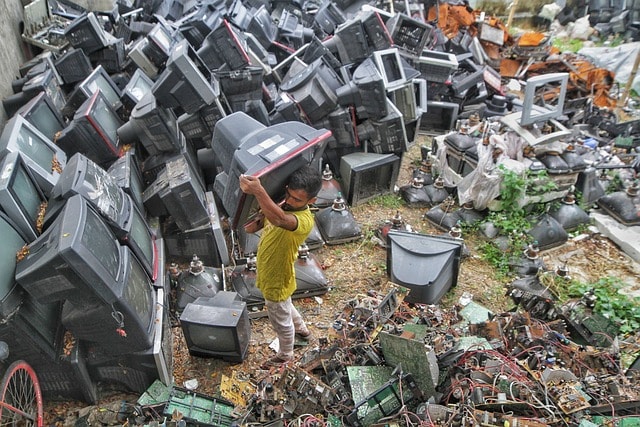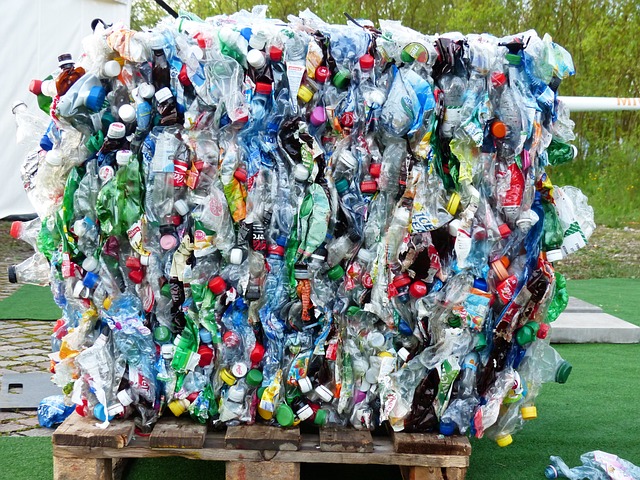WEEE disposal is part of waste management and environmental protection in the UK. With technology growing at such a rate the amount of electrical and electronic waste we are generating is at an all time high.
Proper disposal and recycling of WEEE items not only saves resources but also prevents hazardous materials from harming the environment and human health. This guide covers everything you need to know about WEEE disposal in the UK, WEEE regulations, recycling and how Junk Bunk can help with responsible disposal.

What is WEEE?
WEEE stands for Waste Electrical and Electronic Equipment, it covers a wide range of products that require electricity to function. These include small household appliances, large household appliances, telecommunications equipment and medical equipment.
Examples of WEEE items are mobile phones, washing machines, electrical tools and even sports equipment with electronic components. In the UK millions of tonnes of WEEE are generated every year, we need to dispose of them properly to protect the environment.
Recycling electronics is crucial for proper disposal. Various options are available, including local initiatives, take-back schemes offered by retailers, and accessible drop-off points.
History and Regulations
The Waste Electrical and Electronic Equipment (WEEE) Directive was first introduced in the European Union in 2003, aiming to mitigate the environmental impact of electrical and electronic waste. This directive was transposed into UK law in 2006 and has undergone several revisions to adapt to evolving environmental needs.
The current WEEE Regulations 2013 place the onus on producers of electrical and electronic equipment to manage the waste generated by their products responsibly. These regulations set ambitious targets for the collection and recycling of WEEE and provide comprehensive guidelines for the treatment and disposal of hazardous waste.
By adhering to these regulations, the UK aims to reduce the environmental footprint of electronic waste and promote sustainable practices in the production and disposal of electrical equipment.
Why is Proper WEEE Disposal Important?
WEEE disposal is important because of the risks involved with improper handling. Electrical and electronic equipment contains hazardous substances like lead, mercury, cadmium and flame retardants.
When disposed of improperly these substances can leak into soil and water causing environmental damage and health risks. Proper WEEE disposal helps to:
- Human Health: By keeping hazardous materials out of the environment, proper WEEE disposal reduces health risks to the public.
- Resource Conservation: WEEE recycling recovers valuable resources such as precious metals (gold, silver and copper) used in electronic components.
- Environmental Pollution: Responsible recycling prevents hazardous materials from polluting air, water and soil.
Environmental Impact of Electrical Waste
The environmental impact of electrical waste is profound, with millions of tonnes of waste electrical and electronic equipment (WEEE) generated annually. Electrical waste often contains hazardous substances such as lead, mercury, and cadmium, which can leach into soil and water, causing severe contamination if not disposed of properly.

Additionally, the production of new electrical equipment necessitates the extraction and processing of raw materials, leading to environmental degradation and resource depletion.
Disposing of electrical waste in landfill sites exacerbates the problem, as it can release toxic chemicals and greenhouse gases, further harming the environment. Proper disposal and recycling of electrical waste are crucial to mitigating these adverse effects and promoting environmental sustainability.
WEEE Regulations UK
In the UK WEEE disposal is governed by strict WEEE regulations to ensure safe and sustainable handling. Introduced in 2007 and updated in line with the WEEE Directive these regulations set out the requirements for the treatment, recovery and disposal of waste electrical and electronic equipment. Key elements of WEEE regulations:
- WEEE Directive: The EU WEEE Directive aims to reduce the environmental impact of electronic waste by setting collection, recycling and recovery targets.
- Producer Responsibility: Manufacturers and distributors of electronic products are responsible for the end of life disposal of their products. They must join a Producer Compliance Scheme to manage WEEE recycling and meet the regulations.
- WEEE Collection: Local authorities and retailers often facilitate WEEE disposal by accepting small WEEE items at designated collection points.
The Environment Agency enforces these regulations in the UK to reduce the impact of electrical waste on the environment.
WEEE Categories
WEEE covers a wide range of items, these are typically categorised for disposal and recycling. Some of these categories are:
- Large Household Appliances: Washing machines, refrigerators, electric cookers.
- Small Household Appliances: Vacuum cleaners, toasters, hair dryers.
- IT and Telecommunications Equipment: Computers, laptops, mobile phones, telecommunications equipment.
- Consumer Electronics: TVs, games consoles, musical instruments.
- Lighting Equipment: High intensity discharge lamps and LED bulbs.
- Medical Devices: Dialysis machines and medical freezers.
- Electrical and Electronic Tools: Sewing machines, power drills, control equipment.
Each category has its own recycling process and disposal guidelines to manage environmental risks.
Who Needs WEEE Recycling?
WEEE recycling is essential for everyone who uses electrical and electronic equipment, from individual households to large businesses and public sector organizations.
Whether it’s a computer, smartphone, refrigerator, or washing machine, all electrical equipment must be disposed of responsibly to minimize environmental impact.

For businesses, especially those in manufacturing, retail, and IT sectors, WEEE recycling is particularly critical due to the large volumes of electrical waste they generate.
By ensuring proper disposal and recycling of waste electrical equipment, individuals and organizations can contribute to a cleaner environment and the conservation of valuable resources.
WEEE Recycling Process
The WEEE recycling process is complicated and involves several stages to extract valuable resources and contain hazardous materials. The WEEE recycling process is:
- Collection and Sorting: WEEE items are collected from homes, retail sites and collection points set up by local authorities. Sorting is essential to separate items that need different recycling treatments.
- Dismantling: Items are dismantled to remove hazardous substances like lead, mercury and other toxic elements which need to be handled with care to avoid contamination.
- Shredding and Separation: Once dismantled materials like precious metals, plastics and glass are separated using advanced shredding equipment. Metals are often extracted using magnets and non-metallic parts are processed separately.
- Recycling and Recovery: The separated materials are recycled into new products, some items may go through energy recovery if recycling is not possible.
WEEE Directive
The WEEE Directive aims to reduce the environmental and health impacts of electrical waste by setting recycling targets for waste electrical and electronic equipment. Some of the main objectives of the directive are:
- Increase Collection Rates: To get more electronic waste recycled the directive sets collection targets for local authorities and recycling services.
- Producer Responsibility: By enforcing producer compliance schemes manufacturers are encouraged to design products with recycling in mind and reduce the overall environmental impact.
- Environmental Protection: The directive also aims to reduce hazardous substances in electronic equipment, design of environmentally friendly products.
Under this directive electronic waste must be marked with a “crossed-out wheelie bin” symbol to indicate that the item should not be sent to general waste.
Approved Authorised Treatment Facilities (AATFs)
Approved Authorised Treatment Facilities (AATFs) are key to WEEE recycling. AATFs are authorised to handle WEEE waste and recycle according to regulatory standards.
AATFs are responsible for safe disposal of hazardous materials and recovery of valuable resources from WEEE items. They are monitored by environmental regulators and are essential to meet the UK’s recycling targets.
WEEE Collection and Disposal Options
There are several convenient options available for the collection and disposal of WEEE:
- Take-back schemes: Many manufacturers and retailers offer take-back schemes, allowing consumers to return their waste electrical equipment for recycling.
- Recycling centers: Local authorities and waste management companies often operate recycling centers that accept WEEE for proper recycling.
- Collection services: Some companies provide collection services for WEEE, which can be arranged through a phone call or online booking.
- Drop-off points: Many retailers and manufacturers have designated drop-off points where consumers can deposit their waste electrical equipment for recycling.
These options make it easier for individuals and businesses to dispose of their electrical waste responsibly and in compliance with environmental regulations.
WEEE Items to Recycle
From small household appliances to larger electronic equipment, many WEEE items can be recycled, including:
- Mobile Phones: Contains gold and silver which can be recycled.
- Washing Machines: Parts of large appliances are refurbished or recycled.
- Electronic Tools: Tools with motors or batteries are treated to remove hazardous materials.
- Smoke Detectors: Must be recycled due to hazardous substances.
Each of these items has its own recycling process to comply with UK law and environmental regulations.
Brexit and WEEE Regulations
The UK’s exit from the European Union (Brexit) has raised questions about the future of WEEE regulations. Despite no longer being bound by EU law, the WEEE Regulations 2013 remain in force, and the UK government has committed to maintaining the existing regulatory framework for WEEE.
However, potential changes to the regulations may occur in the future, and it is crucial for businesses and individuals to stay informed about any developments.
Additionally, Brexit may lead to changes in the collection and recycling processes for WEEE, requiring businesses and individuals to adapt to new procedures. Staying updated and compliant with WEEE regulations will ensure continued environmental protection and sustainability.
WEEE Disposal and Junk Bunk
We provide responsible WEEE disposal services for private household customers and commercial entities so your waste electrical and electronic equipment is recycled according to UK law.
From safe disposal of hazardous materials to managing electrical waste, we has an environmentally friendly solution for WEEE items.
By using our customers, we can be sure they are being environmentally sustainable and recycling valuable resources.
WEEE Disposal in the UK
With electronic waste expected to grow in the coming years WEEE disposal will be a key part of the UK’s environmental agenda.
New technologies and improved recycling facilities will help to simplify WEEE recycling and promote sustainability. Continued public awareness campaigns and strengthening WEEE collection facilities will also help the UK meet its recycling targets.
Final Thoughts
Disposal of waste electrical and electronic equipment is vital for the environment, resource conservation and public health.
Everything you need to know about WEEE disposal in the UK is that by following the WEEE regulations and working with responsible recycling partners like Junk Bunk individuals and businesses can make a difference.
Proper WEEE disposal means a cleaner environment, less hazardous materials in landfill sites and recycling of valuable materials.
For more information or to arrange WEEE collection and recycling services, contact us and make a responsible choice for your electronic waste disposal needs.

 CALL NOW
CALL NOW